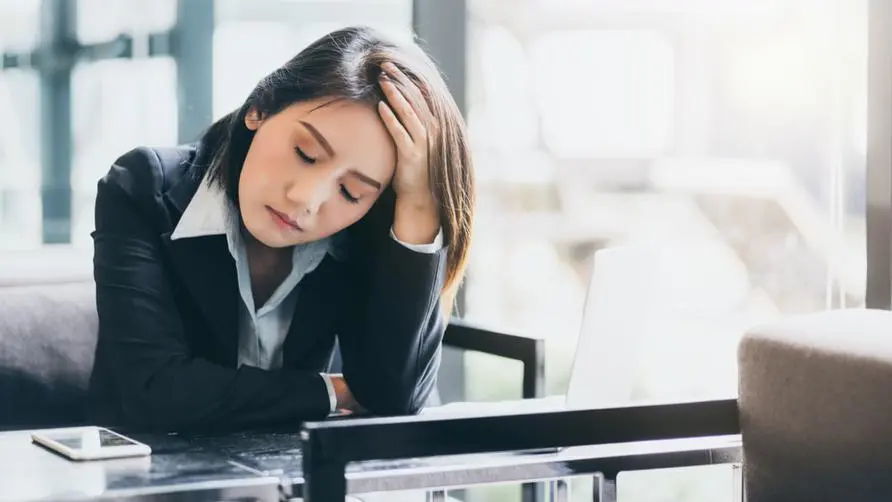If you sleep well, you will naturally feel less stressed! Doctors reveal 3 tricks to reverse "high-pressure constitution": not only exercise is effective

Parasympathetic nerve failure may cause stressors to rush like a “stalling train”
Middle-aged and middle-aged people shoulder the burdens of family, workplace and society, and the pressure is relatively heavy. If the health problems caused by stress are ignored for a long time, it may lead to poor sleep quality and an increased risk of chronic diseases such as cardiovascular, immune system or digestive system. Dr. Su Shengjie, deputy director of Lianqing Clinic, said that how to detect stress, talk to stress, and balance the physical burden caused by stress are health issues that modern people must face squarely.
Dr. Su Shengjie explained that “parasympathetic regulation” in the autonomic nervous system is the key to the body’s ability to relieve stress. Therefore, being in a state of long-term stress will cause the sympathetic nerve to act frequently, making the body like a car that is constantly accelerating, causing the parasympathetic nerve to malfunction, thereby affecting the health of the cardiovascular, digestive and immune systems.
Decreased sleep quality and trapped in a vicious cycle: 2 steps to know whether you are too stressed
Therefore, stress hormone rhythm analysis in functional medicine can assess changes in 24-hour diurnal secretion of cortisol to understand whether the body’s sleep or emotional state is related to stress; methylation metabolism assessment can clarify whether methylation is present imbalance situation. Dr. Su Shengjie pointed out that methylation imbalance may affect the synthesis of neurotransmitters (such as serotonin and melatonin), thereby causing insomnia, forming a vicious cycle of sleep deprivation and increased stress. In addition to health check-ups, stress status can also be checked and monitored through two major methods.
First, look at sleep quality to understand stress situations. Poor sleep quality means that the human body may be in a state of high pressure; medical experiments show that if mice do not fall asleep for a whole night, stress hormones will increase significantly the next day, which means that the brain is in a state of alertness, leading to a decrease in sleep quality. Not sleeping well will in turn increase stress and reduce the body’s ability to handle stress.
Second, wear a device that can monitor heart rate variability, such as a sports watch. Stress can cause a decrease in heart rate variability (HRV), which is the difference in time between heartbeats, or the change in speed between breaths. Normally, the heart rate speeds up when inhaling and slows down when exhaling; however, when under stress, breathing not only becomes rapid, but also inhibits the regulatory effect of parasympathetic nerves.
In order to promote the function of the parasympathetic nervous system, you can “deliberately” practice breathing, such as meditation, meditation, Tai Chi yoga, etc., to extend the time of exhalation. This will help balance the autonomic nervous system and reduce the negative effects of stress. Influence.
Help regulate hormones and nervous system. Doctor reveals 3 tricks to reverse “high-pressure constitution”
Getting enough sleep and proper rest can reduce physical and mental stress, while regular sleep, diet and activity are also crucial. Dr. Su Shengjie said that regular work and rest can help maintain the body’s circadian rhythm. The stability of the rhythm helps regulate hormones and the nervous system, making the body better able to cope with stress.
Dr. Su Shengjie pointed out that the importance of exercise for stress management lies in consuming “stress hormones”. When it is aware of stress, the body will activate mechanisms to deal with stress, just like primitive people in ancient times faced the threat of lions, so that they can immediately escape and fight. At this time, you can use exercise to consume these excess stress hormones, release energy and restore the body’s balance.
In addition, “unpredictable”, “uncontrollable” and “unchangeable” are situations that the brain does not like. If you often feel impatient or angry about changing things, your brain will also feel stressed. Therefore, as you grow older, you should keep an open mind, look positively at the changes and impermanence of life, and not be overly attached to things that are beyond your control. For example, “mindfulness” thinking can help change your cognition, and change your thoughts through changes in your mind. Relieve stress.
Finally, Dr. Su Shengjie reminded that if you have adjusted your sleep or routine but are still very “feeling” stress, resulting in physical and mental discomfort, it is recommended to undergo professional functional medicine examinations, such as stress hormone rhythm analysis, a full set of sex hormones and Adrenal Stress Cortex Analysis addresses underlying health issues from a holistic perspective of functional medicine.
Further reading:





